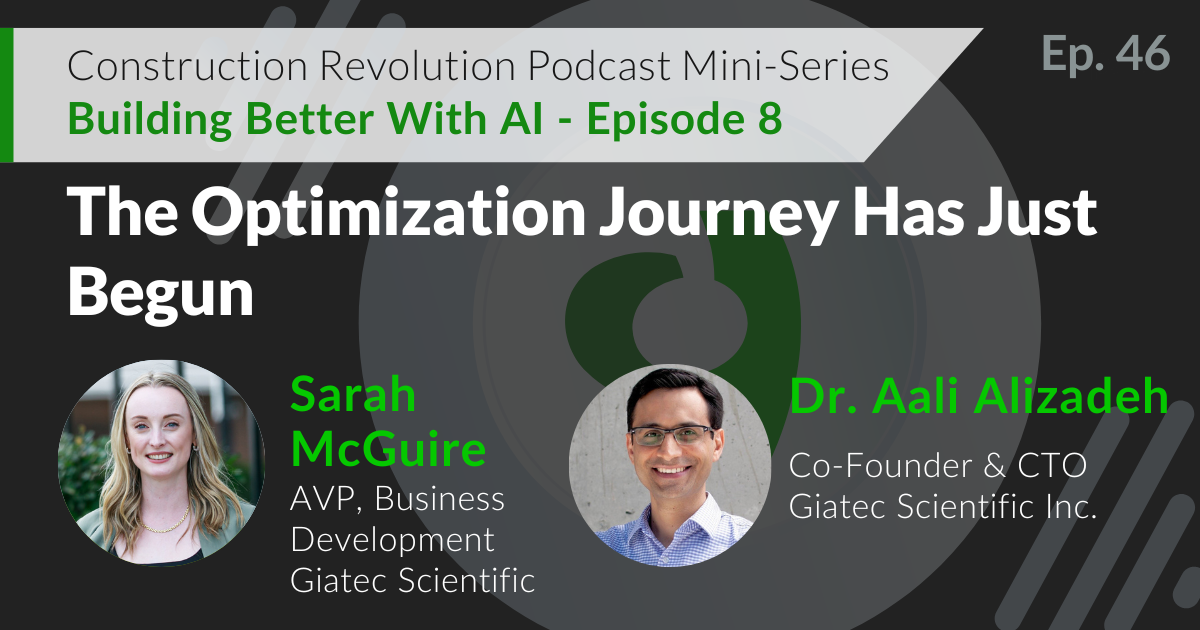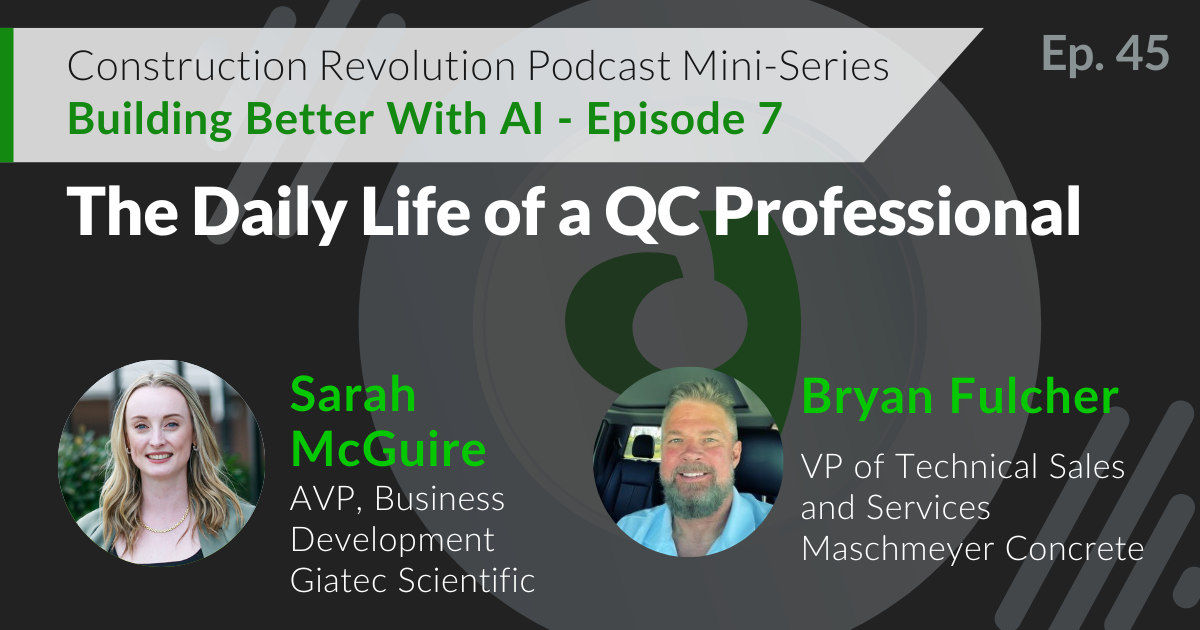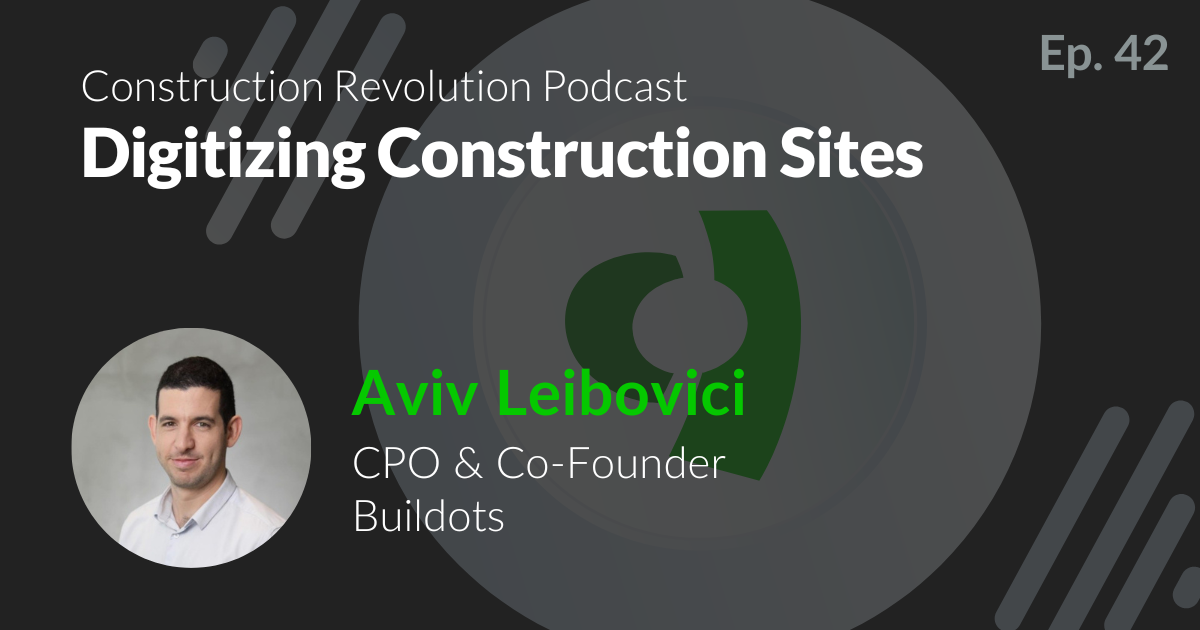
Episode 12 |
June 24, 2021
Shifting the Stigma Surrounding Careers in Construction
In This Episode
In this episode of Construction Revolution, we spoke with Kristina Mahler, the multi-hyphenate founder of CREW Collaborative and Steel Toe Consulting, LLC. CREW Collaborative aims to change the way the construction industry recruits the incoming workforce, cultivates the existing community, and reduces the stigma associated with careers in construction. With her aim to question the status quo by finding innovative ways to grow the construction industry and a passion for small business strategy, Kristina leads CREW Collaborative to address key concerns in the industry surrounding recruitment, spreading word of the merits of the skilled trades space, and why women are integral to this workforce. She breaks down the mechanisms of marketing that small businesses should strive to master, what it takes to build a nonprofit organization from the ground up, and her vision for CREW Collaborative.
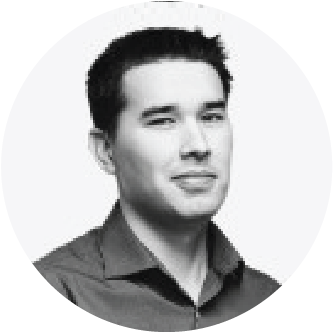
Host
ERIC YEE
Content Marketing Manager, Giatec Scientific Inc.
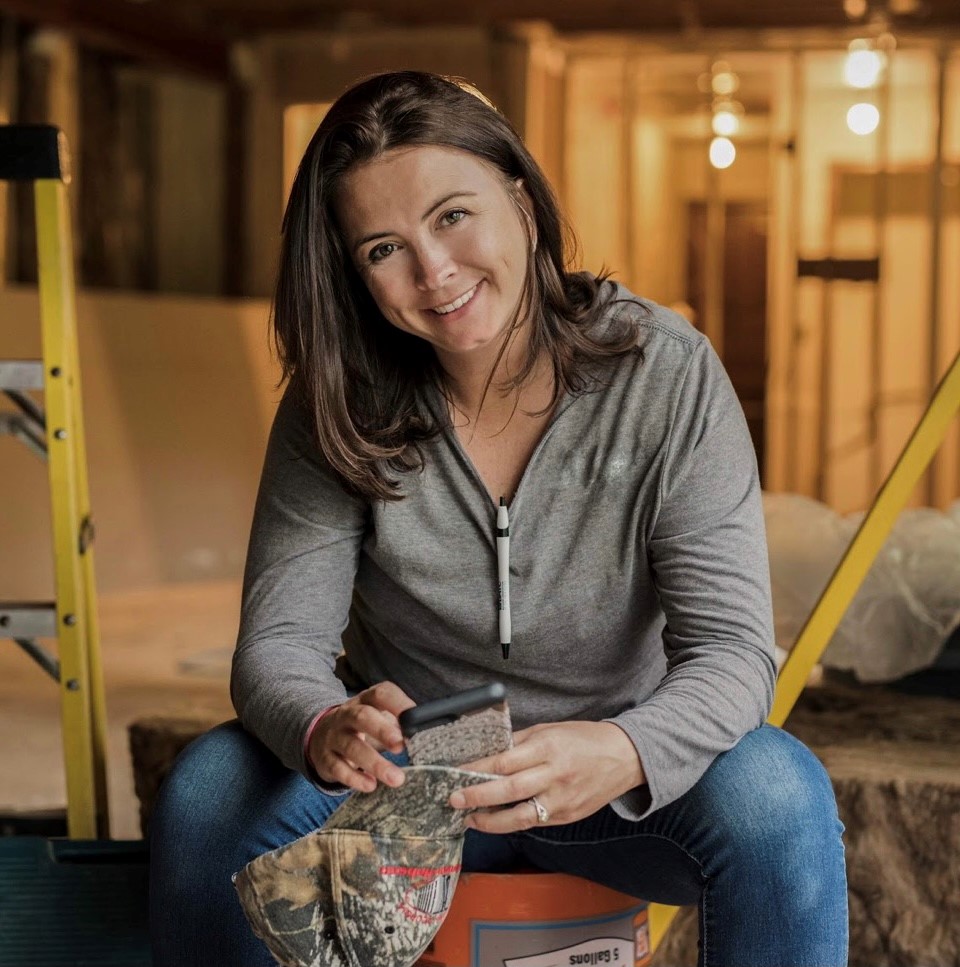
Guest
KRISTINA MAHLER
Founder, CREW Collective & Steel Toe Consulting LLC
Podcast Transcript
Eric Yee:
Welcome to Construction Revolution Podcast. My name is Eric Yee and here on the show, we explore these trends, technologies, people, and organizations that are revolutionizing or disrupting the construction industry and changing what the industry will look like tomorrow. Today on the show, I’m speaking with the founder of the CREW Collaborative Kristina Mahler. The CREW Collaborative aims to change the way the construction industry recruits the incoming workforce, cultivates the existing community, and shifts the stigma surrounding careers in construction. Kristina is a self-described mom from the ‘burbs who just happens to be obsessed with all things construction. She is California-born, Minnesota-raised, and always eager to check out new places especially if it requires a hard hat.
Prior to starting Steel Toe Consulting and founding CREW Collaborative, Kristina had an eclectic career spinning concert production, jewelry design, high-end residential buildings, and landing in civil construction. She has a passion for small business strategy and helping owners get out of their own way through Steel Toe Consulting. Her clients appreciated her honesty, work ethic and ability to push for great results. Kristina is personally and professionally driven to have a positive impact on the construction industry. CREW Collaborative allows her to question the status quo in construction and find innovative ways to grow the industry she loves.
So without further ado let’s hear from Kristina just after this. There’s a certain stigma to work in the construction industry. Like I know when I was in high school was sort of presented as the option you have if you aren’t successful in their particular academic metrics. So I was wondering what sort of incorrect beliefs are people carrying around about working in construction and how you’re working to change it?
Kristina Mahler:
So this one I have a personal story about, and it kind of ties in as to how I started being interested in construction, and then how it sort of came into play later in my life. Because I’m going to be turning 40 this year and so it all started for me back when I was 16 and I took a welding class in high school, which I know not a lot of high schools are offering anymore. This is like the crux for me of the problem that we have for construction. So, I was going through this class. I loved welding. I enjoyed the power that I felt when I was doing it and creating something with my hands. As a 16 year old I went to a huge high school and so finding something that you really were into was a big deal.
And I was like a C average student. So I was not like a fantastic student by any means. I was average, and that’s totally fine. I wasn’t into any sports, I did a lot of volunteer work, but this was like a thing that I felt really good about. So I started thinking about going into welding out of high school right away after that, or carpentry seemed cool to me too. And then I took my, is it my ACT, or the SAT? I always get the ones mixed up, but I got a 31 on it which is really high. So all of a sudden my counselors were paying attention with what I was going to do with my future. Which reflecting on it now, I think is just such a great example of what’s wrong here. So when I was an average not-so-great student, nobody really cared if I wanted to go into the trades, but once I did well on my test, and people were like, “Oh, crap she’s actually kind of smart.”
Suddenly I was getting pushed to go to college and almost being treated like it would be a mistake or like I would just be missing out on all this opportunity in my life if I didn’t pursue a degree. I didn’t have a degree that I was excited about, I didn’t have a career I was excited about, but I ended up going to a four-year college. I still haven’t paid off my college bills and that’s frustrating. So I had a great time at college. I probably learned more from bartending through college than i did in my actual classes. But fast forward to when I was about in my early thirties and I started getting more into construction. I kind of fell into residential locally here in Minneapolis and I started working for the local home builders association.
That was kind of the first time I got back into the sort of skilled trades space and just starting to kind of tie those two pieces together, seeing how we had this workforce shortage, and then really digging farther into it. Because I’m the type of person who if I see something wrong, I have a hard time leaving it alone. It’s like a nervous tick almost. I can’t leave it alone. So it bothered me that these people working in labor or working… My husband’s a Tile Setter. People that are actually doing the job to build things up are “looked down upon.” The more I got into that, the farther I got into construction and now I’m really working in the civil space. It’s just kind of remained this personal passion of mine that we figure out a way to change the conversation about people in the trades, and people who are working in construction and kind of reanalyzing how we look at them because these people are thinking every day they have to use strategy, they use a lot of math, there’s a ton of spatial reasoning.
Just the things that even the most simple laborer on a job site like a ditch digger, people look down on these people and they’re like, “Oh, he’s just a ditch digger. He must’ve done something wrong with their life.” Those people know more about angles and how to get into a certain space, and really like how things function underground than I would say 95% of people out there. I think that what am I doing personally to change that? Well, with CREW we’re really just focusing on changing it from the start. Putting actual people in front of high school students and even people who are in their mid thirties, who may want to switch careers. So putting actual, real life industry folks in front of them, and showing these potential workforce individuals. People who might join our workforce that there is nothing wrong with choosing the trades.
In most cases, they’re making more money than a lot of these college graduates are going to make right out of college. You don’t have to incur that debt. There’s actually also a ton of other paths to get to some of these jobs that might require a college degree. There’s ways to get into those jobs as well without that college degree just by working your way up a path within a company as well depending on what you want to do. So just really changing the narrative around if you’re in high school and you don’t know what you’re going to do, we’re not saying that you shouldn’t go to college, but you shouldn’t go to college until you have a plan.
If you don’t go to college that’s okay, and if you end up working in construction, that’s great. We can use you and you’re going to make a buttload of money.
Eric Yee:
Yes. Absolutely well. I really like the idea of putting actually people in the industry in front of high school students, because otherwise their only representation or idea in their head about working in construction isn’t making maybe what a guidance counselor, or someone else tells them. With high school, a lot of people are incentivized to really kind of push towards higher education. So they push towards those things, and I like the point you made about people working in construction, they use a lot of math, and a lot of these things that you learn in high school. That I don’t know how many of my college friends or people I know who went to college, they always talk about they learn math in high school, and they haven’t used it since. Where someone that is working in construction, they probably use it every day. It’s a very ironic kind of situation.
Kristina Mahler:
Yeah. That’s one of the biggest feedback we get after we’ve done our CREW classroom talks where we put like 10 to 12 tradespeople in front of a high school classroom. The feedback we always get is so great. Like, oh, I had no idea that I could do something like that and make that much money. But the second most popular response is “I didn’t realize I would use math that much after I graduated high school”. It made them want to pay more attention in math, which is great because I hated math, but I also use it all the time right now.
The whole tie back talking about going into welding when I was in 16, like now as an almost 40 year old, I’m now looking at actually pursuing welding. Because I, as a professional, who has a four year degree and a fairly successful business know that I’m only as good as the market right now. I want to have a trade to fall back on should all hell break loose and I don’t have clients anymore. I do know that I can always get a job doing welding, and make great money and support my family.
Eric Yee:
Yeah. That’s great to make that move now before you’re forced to kind of make that move for sure.
Kristina Mahler:
Yeah, exactly. Plus it’s fun.
Eric Yee:
It is really cool, especially because I think it’s one of the few places where you actually, you make something from almost these different elements, and things like that, and you actually put something together. Which I know a lot of the times like I do some minor carpentry with furniture, and people are always flabbergasted that someone can make something, not in a big factory or something like that.
Kristina Mahler:
Yeah, we can do a lot. We can do whatever we want.
Eric Yee:
Yeah, really welders can. So I don’t know one of the areas that the CREW Collaborative focuses on is putting women forward as leaders in the construction industry. Now I know we’ve seen success stories in other industries about how diversity is really important, but how important is it for like a diverse workforce in construction?
Kristina Mahler:
Well, in all reality that the industry needs women and minorities more than ever. This isn’t just a yay women thing. It’s a holy crap we need to grow our industry type of thing. Right now we’re not appealing to a large portion of our populations. So for me, it doesn’t go much deeper than that. I don’t have this sort of like agenda of pro women. I really am focused on what is best for our workforce. At the end of the day, that’s bringing in whoever is able-bodied to do it. Able-bodied isn’t even the right thing because there’s things for people who have physical disabilities to do in our industry as well. I just think that when we started CREW, it did start out as a discussion between 12 women, and trying to figure out how we can bring more women into the industry and make them feel more comfortable joining the industry.
It comes down to as most of this does, effective marketing. Changing what we view as normal on our job sites, normalizing seeing women and men working side by side, and not just on the job sites. But in leadership and construction companies. Not just working in marketing and HR, which seems to be the areas that we always fall into as women across a lot of industries. Those are the positions we fall into, but engineers and women in STEM, and women laborers and anything that they want to do, to me it shouldn’t be such a big discussion. It should just be done because it the only way to solve our problem. We are dying as far as our workforce goes right now. Although I will say we are starting to make an upturn, which I think is fantastic.
Eric Yee:
Yeah, that’s great. I think regardless when you see some of the stats from previous years of the workforce kind of shrinking, it’s just a matter of getting people in regardless of who they are, what their background is and just everyone working together side by side.
Kristina Mahler:
For sure, 100%. It’s to me like I’ve always stood up for myself in a way that I don’t really… I’m a woman, but I don’t really think of that as a thing. It’s just who I am. So I’ve always had a hard time understanding, like why I would be differentiated for any sort of position. It wasn’t until I really started to push into this and look at the things that… because there are going to be different things that stop women from joining the industry, or get them to leave the industry that to me should be non-issues. But there are still things we need to address. Which I’m happy to take into if you’d like me to.
Eric Yee:
Well, that might tie into my next question. Because when I was doing some prep for the show, I read a post from the CREW Collaborative LinkedIn page from someone associated with the organization, Zach Taylor. Where he mentioned that women are more likely than men to lead the industry within three years. Is that true? What are the reasons for kind of driving that?
Kristina Mahler:
That’s like an enormous question. Yes, it’s true. Zach had a great post about that and he’s one of our board members. He is a union operator up in the Northeast. That’s one of the benefits of having such a diverse board of directors for us. So we have operators, we have engineers or project managers, we have salespeople, we have all sorts of random positions. But yes, within three years if not sooner, I think that’s kind of like that make or break time for most women. I think a lot of times it has to do with things that we don’t necessarily think of. One of the big issues for women is generally we are caretakers. So women or the moms more often than not we’re they’re going to be the ones that have to leave early for a doctor’s appointment. If we’re pregnant, it’s a little bit harder for us to get in and out of equipment. There’s the maternity leave piece, or when your parents are aging and you have to take care of your parents, you might have to leave for appointments for them. We’re just generally caretakers.
It’s neither here nor there, it’s just a reality. With the way that construction companies are currently set up to kind of reward that dusk-till-dawn mentality, like the more hours you work type of thing, the more respected you are. It makes it really hard to establish yourself on a job site and gain respect from your coworkers if you’re constantly having to handle those other responsibilities in your life. I don’t necessarily agree that women should be the only ones taking on those caretaker roles. It’s just a generality that that’s how it is. So it makes it feel like it’s something that’s less likely for us to be able to handle long-term. Then there’s other things like, yes of course, job site harassment happens. It’s not something I love to talk about just because it’s uncomfortable.
Eric Yee:
For sure.
Kristina Mahler:
There’s definitely a different type of relationship between a male and a female as far as like that teamwork thing. I’ve written a couple of posts about this and the one thing for me that always bother me is like if I walk on a job site immediately, it seems like everybody gets quiet. It’s like they’re waiting to gauge kind of like what type of personality I have. I know that it’s not like that when a guy walks on site, but it’s almost like you’re looked at like a unicorn. You walk on and it’s like, oh, it’s a woman. Is she going to be super uppity? Is she going to be like get pissed off if I make a joke that she might take the wrong way? There’s like that sort of fear of how am I going to be perceived? Or it’s just kind of like, they’re like F it and they just continue to be themselves.
If they’ve got the wrong type of dynamic happening on their work site, then that’s just not going to come across while either. So no matter what there’s always this unspoken or spoken split between women and men. That’s one of the reasons that we made our board 5050 men and women for CREW Collaborative, because we feel like those conversations need to be out in the open. We need to start talking about shifting the overall culture of our industry. I’m all about jokes and I have a pretty crude sense of humor and I’m a pretty sweary type of person. I curse quite a bit, but some people take offense to that, and so maybe we need to up the professionalism on our job sites, or maybe we just need to have some open conversations about what that looks like. It’s kind of one of those things that needs to be discussed, but nobody really knows how to unravel that ball of twine.
Eric Yee:
I can see we’re just having more women on a job site would definitely decrease the unicorn effect. If you’re seeing like women on the job said everyday, you probably wouldn’t stop your conversations when woman comes on. That’s probably something that would take a lot of time just for them to get used to as more women are integrated into the workforce.
Kristina Mahler:
Yeah. I think that that comes down to a lot of marketing. So I would encourage any construction companies or anybody working in this space who’s doing any sort of marketing to have imagery that includes men and women. Don’t just make it women because that seems like you might be pushing a little too hard. I was actually contacted by a fairly large brand recently who was looking at doing a video production thing. And they wanted it to be an all female team of people like 12 female operators. And I’m like, that’s great. I love that. You want to throw your support behind something so important. But the best thing you can do is actually have it be more like women and men working together. So we can stop having this sort of like pro women only.
Like look at them go type of thing. And more like what most women who are working in construction want. Hey, we’re here to do the same thing that you’re doing. It’s no big deal. We just want to show up and work hard type of thing. So they shifted that plan. I’m really excited that they took that advice because I think that it’s going to have more of an impact than having another one of these RAWRAW women only type of things.
Eric Yee:
Yeah. I think you’re probably right, because I think most people nowadays are savvy enough to notice when people are pushing that message too hard. A lot of people, when they see that they can be resistant to it, and almost pushback. I think it can create more of a negative unintended effect than the company was originally trying to achieve. So, speaking of marketing, I work in marketing and I know you do as well. So I was wondering, I was looking at the Steel Toe Construction consulting business that you have. You say that you help medium and small sized construction businesses stop doing random acts of marketing. I was wondering if you could define what that is and what sort of changes are you trying to make some of these construction businesses carry out?
Kristina Mahler:
So, my consulting company, Steel Toe is something that I’m insanely proud of. It’s a very targeted niche for consulting. I hate the word consulting in general, but there’s no other great word to put on it. I go in and I work with these clients and a lot of them, if I can generalize are small family-owned businesses. Usually in the first, second, sometimes third generation. As we know as small business owners, you start your business with an idea and you just start running full speed at this wall. You keep running at it every single day. That’s, especially in construction that’s just kind of the nature of the beast. That’s how you grow. That’s how you gain traction. You just keep doing the work.
A lot of these business owners, they want to do marketing, but because they don’t know how to effectively market to our current, it’s all social media now. So it’s no longer like just put together a nice website, and do some banner ads. That’s not how you market anymore. You have to actually be personally connected to your audience. It’s less about bringing in new clients. It’s really more about recruiting and retaining employees. So what I do is we work through a lot of stuff, but when we talk about marketing, which is actually one of my least favorite things to work on with my clients. I’m much more into the coaching and leadership development side of things. But when we talk about marketing, the first thing I insist we do is that we have a mission and values exercise, so that we can actually define what is different about that business.
There’s a million construction companies that do the same thing. There’s millions of asphalt companies, there’s million of excavating companies. There’s people that do it all over the world. There has to be something no matter how small that differentiates each business. In most cases, it’s going to be the business owners and the personalities that they have chosen to be on their team. So the most important thing that they can do, because we can all talk about quality and integrity and all those things. But they are completely empty if you don’t have a personality for your business. So when I talk about random maximum marketing, it’s kind of like these pay-to-play marketing situations where you have these… And I’m not knocking on any of these marketing companies because they work for some types of businesses.
I just don’t think in this area they do any good, but where you got like throw a thousand dollars a month towards your marketing company and they will just basically create content that’s not personal to your business. To me, the most important thing is for you to have your face outward, and your personal brand message outward. Share what you do on a daily basis out there. Graphics are great, but if you’re just posting a bunch of graphics and not following it up with what makes you unique, then it’s just redundancy in my opinion.
Eric Yee:
Yeah. Just a lot of noise. When you’re someone that’s sitting on your couch at home after working, and you’re scrolling on your Facebook feed, or your LinkedIn feed, you see a lot of the same graphics. Alternating a little bit between different companies, but the things that do stand out are those more personal things, or are those actually people in front of the camera. That’s why it’s just stop and look at it, engage with different content.
Kristina Mahler:
Well, we’re so digital. The world is so digital right now that it’s like, you have to remember, especially with COVID this past year, and how even more digital we’ve become where we’re always talking on a computer screen. We’re always on the phone. There’s so much less human interaction. People are craving that. So it’s like what you should be giving to your audience. I’m working with a client right now. They’d been trying to work on their social media for like three years and I scrolled back and everything that they’ve ever posted is graphics. They have no photos, just graphics. She’s like, “I can’t understand why we only have 75 followers on Instagram when we put all this money in to boosting these posts, and graphics.” I’m like, “Well, because nobody knows who you are.” She’s like, “Well, we put it out here in these graphics.” It’s like, “But nobody knows who you are.”
If you’re a small business, it’s sort of like that mental thing where if… You know somebody who designs jewelry, right? You want to be like, “Oh, I know somebody who does that.” If somebody is thinking about like landscaping, you want to be able to be that person who says, “Oh, I know somebody who does that.” So even though we live in a big world, it’s relatively small when it comes down to marketing.
Eric Yee:
Yeah. People really like nowadays associating with different people, right? Not necessarily faceless corporate brands. It makes a ton of sense, especially for that client where if it’s just heavy graphics that might look the same as other people’s, it’s very hard to differentiate yourself. Which it sounds like you’re taking a great approach with your clients.
Kristina Mahler:
Well, and the random acts of marketing too is tough because if you’re not consistent with your marketing as well, you have to be consistently posting and you have to be consistently in the same message and voice and lead develop that personality and almost beat people over the head with it. People know after probably following me on LinkedIn and Instagram that I am a mom, I’m very opinionated and I’m extremely passionate about construction. That’s about all they need to know about me. Because that’s the professional personality that I want to put out there.
Eric Yee:
Maybe on a similar note, my last question for you, Kristina, is we’re going to be able to learn more about you and the CREW Collaborative, and how could they get involved if they want to?
Kristina Mahler:
So the CREW Collaborative is brand new. So we literally incorporated in December, and we are now at the beginning of May. Anybody who has built an organization, especially a nonprofit from the ground up knows that it’s a lot of work. So we don’t have per se spots right now for people to get involved. So, we are developing out our website and programs right now. We’re meeting all the time to put these things together. What will happen eventually is we’ll launch them on our website I would think within the next couple months. So if people want to get involved or if they want to learn more about what we’re doing, I would encourage them to go to our website. It’s crewcollab.org, and that’s C-O-L-L-A-B.org. You can sign up for a few different newsletters and opportunities on there.
Just don’t be disappointed when it’s not like the full package programming right now. It’s coming I promise. The thing with CREW that’s different is we’re doing a lot of things as far as workforce development for construction that have never been done before. So we welcome any anybody to get involved, who is really looking to push outside of the comfort zone of our industry, and kind of disrupt the way that things are right now. Because if we don’t have a little bit of disruption, we’re not going to have any growth. So that’s really the type of people that we are looking to get involved with right now. And some of the opportunities that we are going to be looking to plug people into soon are our committees.
We have committees for marketing, and then we also have committees for CREW classroom talks where we’re going to be assembling these calls to high schoolers, and people who might be looking to get into a second career, or transitioning military is another one that we’re going to be targeting. We will also have an ambassador program that we will be opening up in the next couple months, where we will be training people in any position within construction with leadership skills to help them be an amplifier and be a voice of the workforce for construction. They kind of become their own mini chapters of CREW across the country. That program I’m really excited about how that’s going to evolve. We’re going to offer memberships for corporations who are businesses who want to support us. Obviously as a nonprofit, we have operating costs that we’re going to need to be covering.
Right now we’re just kind of covering them as they come up, and hoping that we can have enough money in the bank to hit it. So we’ve been very lucky with the companies that are supporting us so far. We have no doubt that this organization is just going to blow up as soon as we release it out into the world. If you want to find us on Instagram, that’s another area that we’re going to be getting very active on pretty soon. It’s @the.crew.collab. If you want to find out more about my business, I’m just redoing my website right now. But my name on Instagram is @kristina_lately. The word lately, L-A-T-E-L-Y. That’s just because I love Chelsea Handler so much. She had a show [Eric: I was wondering what that was.] Chelsea Lately. Yeah. And then I’m also on LinkedIn obviously, and so is CREW.
Eric Yee:
Awesome. Well, Kristina, it sounds like you have a lot on your plate. In coming months, you’re going to be really busy, and I’m looking forward to following the journey and seeing where you guys end up.
Kristina Mahler:
Thank you. Yeah. We’re excited. Stay tuned. It’s going to be awesome.
Eric Yee:
Well, thank you so much for coming to the show today.
Other Related Episodes
Episode 46 |
July 11, 2024
The Optimization Journey Has Just Begun
In the eighth and final episode of our "Building Better with AI" mini-series, "The Optimization Journey Has Just Begun," we’re introducing a unique twist. This time, Sarah McGuire, AVP Business Development, switches roles and steps into the hot seat to answer questions rather than ask them. To guide this special conversation, we’ve brought back our Co-Founder and CTO of Giatec, Aali Alizadeh, Ph.D. This episode provides a comprehensive update on where SmartMix, Giatec’s AI-powered mix management system, currently stands. Sarah and Aali discuss the significant progress made since recording the first episode in December 2023, highlighting the challenges overcome and valuable lessons learned during the implementation of SmartMix. Listeners will gain insight into customer success stories and the transformative impact SmartMix has had on the concrete industry. This episode offers a reflective and forward-looking perspective on the journey of SmartMix, showcasing how it continues to drive innovation and efficiency. Tune in for a compelling discussion that not only recaps our journey but also looks ahead to the future of AI in the concrete industry. Don’t miss this insightful and engaging conclusion to our mini-series!
PLAY
Episode 45 |
June 27, 2024
The Daily Life of a QC Professional
In the seventh episode of the "Building Better with AI" mini-series, host Sarah McGuire explores "The Daily Life of a QC Professional" with Bryan Fulcher, VP of Technical Sales and Services, Maschmeyer Concrete. Drawing on extensive industry expertise, Bryan provides a glimpse into the multifaceted role of quality control professionals in the concrete sector. The conversation begins with Bryan's career journey and the evolving expectations and challenges faced in QC over the past two decades. Throughout the episode, Sarah and Bryan delve into key topics such as misconceptions about QC, the integration of AI and technology in enhancing efficiency, and preparing for the future of AI-driven QC processes. Bryan shares practical insights into managing daily operations, handling technical challenges, and fostering industry-wide innovation. Tune in now to gain a deeper understanding of the pivotal role QC professionals play in shaping construction standards and driving quality assurance in the concrete industry!
PLAY
Episode 42 |
May 16, 2024
In this episode of The Construction Revolution Podcast, we are joined by Aviv Leibovici, CPO & Co-Founder of Buildots. Aviv brings a mix of technological innovation, and visionary entrepreneurship to the construction industry. Join host Steven Rossi as he delves into Aviv's remarkable journey from an esteemed educational background in computer science to the groundbreaking establishment of Buildots. Discover how Aviv and his team are revolutionizing the construction world with AI-driven technology that transforms construction sites into digitized environments for real-time tracking and decision-making. This episode offers a deep dive into how Buildots' platform is influencing major construction projects worldwide, enhancing efficiency, and redefining traditional construction methodologies. Don't miss this episode to learn about the fusion of AI, computer vision, and construction management through the lens of Aviv Leibovici's unique experience and vision. This conversation is a treasure trove of insights for anyone fascinated by the intersection of technology and construction, and it underscores why Aviv's leadership at Buildots is pivotal for the future of the construction industry.
PLAY
Want to Be a Guest Speaker, Sponsor, or Just Have a Question for Us? Fill In the Form!

